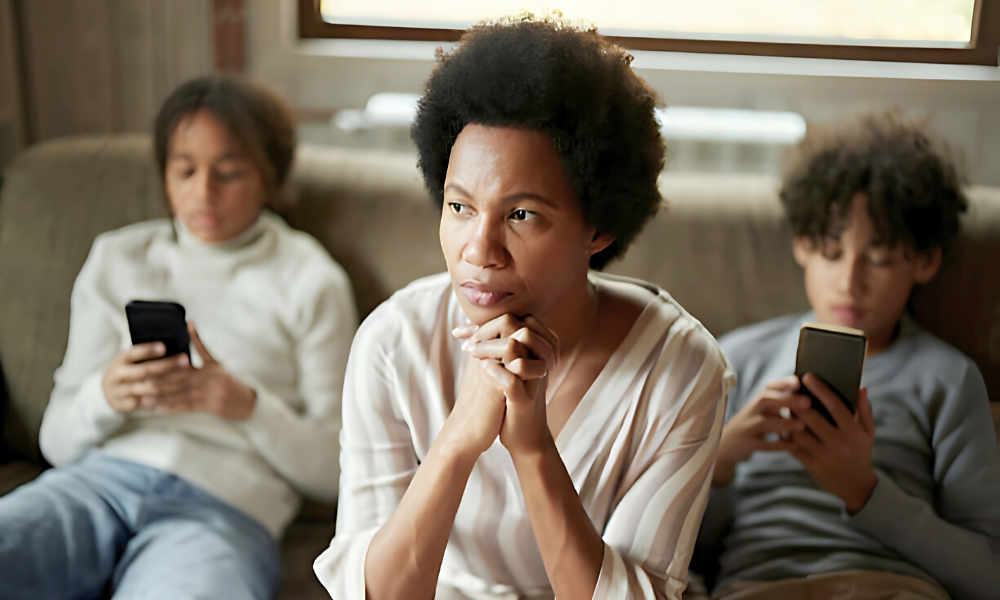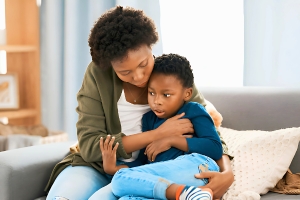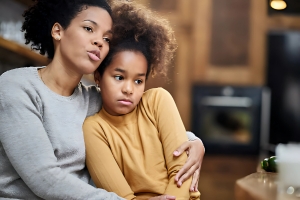
Let’s talk about something heavy today, something that lives in the back of your mind as you try to raise your kids in a world that doesn’t always feel safe. If you have both a son and a daughter, have you ever stopped to think about who you worry about more? It’s not an easy question to answer. Maybe it’s not even fair to ask. But the fears and anxieties tied to raising Black children—sons and daughters alike—run deep, don’t they?
This isn’t about comparing hardships or suggesting one experience is harder than the other. It’s about acknowledging how the weight of the world lands differently, depending on the child’s son and daughter. As parents, caregivers, and even community members who help guide young people, it’s worth reflecting on these anxieties—not to add to the worry, but to better understand it.

When you think about your son, the first fear that might come to mind is his safety. Maybe it’s the thought of him walking down the street, hoodie up, while people mistake him for a threat. Maybe it’s the way your heart sinks every time you hear about another tragic interaction between a Black man or boy and law enforcement.
You might find yourself giving him “the talk” earlier than you ever imagined—explaining how to interact with police, how to keep his hands visible, how to make it home safe. You wonder if the world will ever see his smile, his brilliance, and his kindness before they make assumptions about him.
One mother recalled a startling moment when her son was just four years old. He had been playing in the park, joyfully sharing his favorite dinosaur facts with anyone who would listen. But as she watched him interact with older kids, a thought struck her out of nowhere: How will the world treat him when he’s older? When he’s no longer this small, this innocent?
That question haunted her because she realized she had never had those same thoughts about her daughter at that age. At four, her concerns for her daughter were about scraped knees or whether she was making friends at preschool. But for her son, it was as though the weight of the world’s judgments had already started to creep into her mind, uninvited yet impossible to ignore.
And then there’s the pressure. For so many Black boys, the expectations are as heavy as the obstacles. “Be strong,” they’re told. “Be a provider, Be tough.” You worry about whether he feels like he has the space to express himself fully, to show vulnerability without people labelling him as weak.

And then there are our daughters. When you think about your girl, the fears might look different, but they cut just as deep. You worry about how she’ll navigate a world that can be dismissive of her intellect, her voice, or her body.
Maybe it’s the way she’s already expected to mature faster than her peers, how the world often sexualizes Black girls at a young age. You wonder if people will take her seriously when she speaks up in school or the workplace. You question whether she’ll learn to set boundaries and advocate for herself in relationships, friendships, and careers.
One father recalls watching his 11-year-old daughter dance joyfully at a family gathering, only to overhear someone’s comment, “She’s growing up fast.” It was a harmless remark on the surface, but it hit him differently. At that moment, he realized how quickly society strips Black girls of their innocence, forcing them to navigate a world that too often doesn’t protect them.
And then there’s the fear of her voice being silenced or dismissed. Black women are often told they’re “too much”—too loud, too assertive, too opinionated. You wonder if your daughter will grow up feeling the need to shrink herself, to dim her light to make others comfortable.
Though the specifics may differ, the fears overlap. Whether it’s your son or your daughter, you worry about how racism, sexism, and systemic inequality will shape their experiences. Will they be given the same opportunities as others? Will they internalize the negative stereotypes the world tries to place on them?
And let’s not forget the digital world—another layer of anxiety. Social media, online bullying, and the constant stream of news amplify the fears. Your child might come across messages that make them question their worth, or the public could scrutinise them for a mistake that spreads far and wide.
So, do you fear more for your son or your daughter? The truth is, there’s no answer to that question, at least not one that fits neatly into words. The anxieties might differ, but the love behind them is the same. It’s the love that keeps you up at night, that drives you to protect, to guide, to teach.
And maybe the better question is this: How do we prepare both our sons and daughters to face a world that isn’t always kind or just while equipping them to challenge and change it?
Because at the end of the day, that’s what it’s about—raising children who know their worth, who walk in their truth, and who carry the strength of their ancestors into the future.
4-minute read Have you ever found yourself lying awake at night, heart heavy with worry about your teenager’s safety during interactions with the police? It’s a question that lingers for many parents and caregivers, especially when history and statistics both
4-minute read I’ve spent a lot of time thinking about beauty—what it means, who gets to define it, and whether it’s really as inclusive as we like to think. And the more I look at it, the more I realize
4-minute read Let’s be honest—the Hidden Agenda Behind Beauty Ads is everywhere. They follow us on our phones, pop up in our social feeds, and even sneak their way into our subconscious when we least expect it. One minute you’re